Metropolitan Police officers to get 20,000 body cameras
- Published
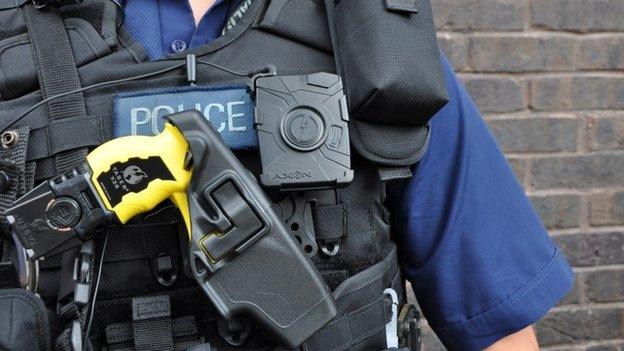
About 20,000 devices will rolled out to the majority of Met Police officers by March 2016
Plans to equip all Met Police officers with cameras on their uniforms have been announced by the Mayor of London.
Officers across 10 London boroughs are currently involved in a trial using about 1,000 devices, to boost transparency and speed up convictions.
Boris Johnson said he planned to buy another 20,000 body-worn cameras for most officers in the capital by March next year.
The Met Police said the devices would "improve public scrutiny" of officers.
Mr Johnson said: "This is exciting technology that will build trust, help the police do their jobs, and allow the public to hold officers more accountable."
The trial, which started in May 2014, has seen about 6,000 videos uploaded each month, with participating officers saying the cameras demonstrated they could reduce complaints and increase the number of early guilty pleas.
Officers store material from each incident and keep it on file for a month unless it is required for evidential purposes.
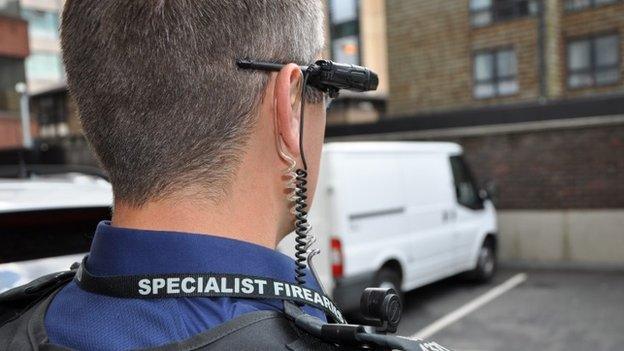
The trial has seen about 6,000 videos uploaded each month in the last year
Met Police Commissioner Sir Bernard Hogan-Howe, said: "For too long our equipment has lagged behind the technology almost everyone has in their pockets to capture events as they unfold.
"Soon, more of our officers will be able to make a record of the very challenging circumstances they are asked to deal with on a daily basis and then demonstrate, more effectively, the reality of policing our capital."
A report from the London Policing Ethics Panel with guidelines on how officers should use the cameras, is due to be published in September.
The new devices will be funded with money raised through the sales of underused police buildings, City Hall said.
The introduction of body cameras followed criticism of the Met over the death of Mark Duggan, who was shot by armed officers in August 2011, sparking riots across England.
Andrew Allison, from The Freedom Association, a group which challenges the erosion of civil liberties, said: "It is not the way we do policing.
"It puts everybody under suspicion and I do not think it helps someone who wants to approach a police officer - they may not want to be recorded."
- Published8 May 2014
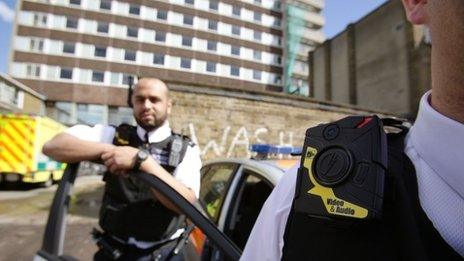
- Published31 March 2014
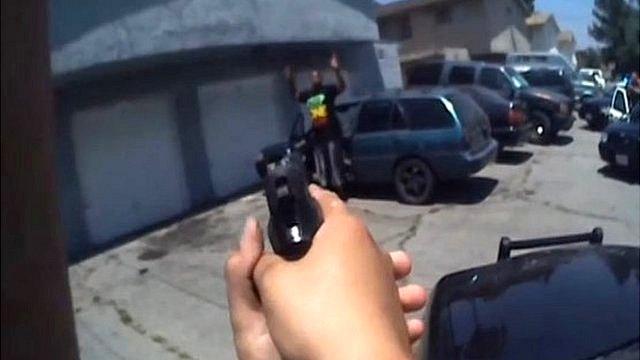
- Published15 January 2014
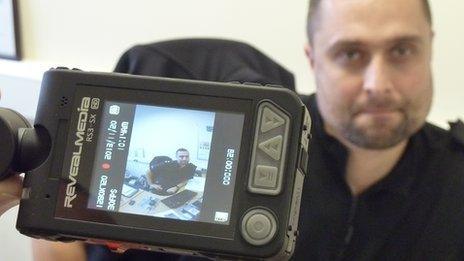
- Published30 November 2013

- Published24 October 2013